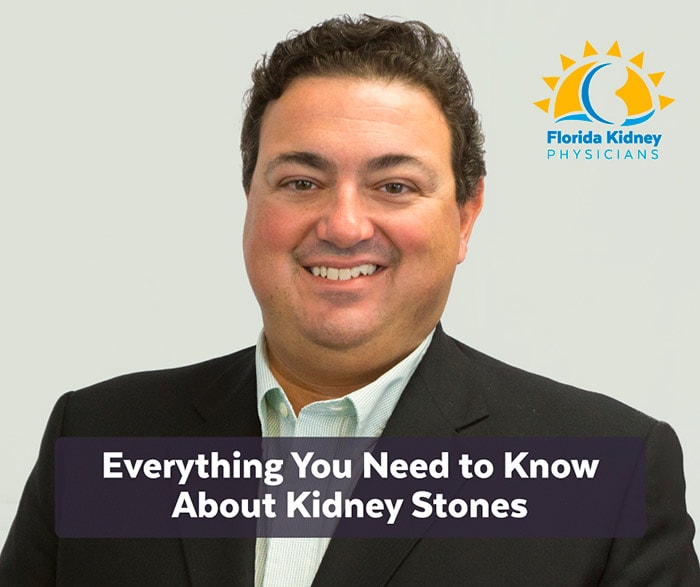Nephrolithiasis (kidney stones) is one of the most painful conditions of the kidneys, and a quite dangerous one too. How can you tell if you might have kidney stones? What does the pain feel like? Can you do anything to relieve it at home?
Here’s a handy overview from Alberto Casaretto, MD, a kidney specialist at Florida Kidney Physicians.
What are kidney stones and what causes them?
One of the primary functions of the kidneys is eliminating waste products and excess electrolytes from the body. Some of them may get trapped and accumulated in the kidneys, sticking together and forming little stones.
These stones damage the kidney tissue and may even obstruct the flow of urine, leading to a build-up of liquid in the organ.
The main types of kidney stones are:
- Calcium stones in the form of calcium oxalate and calcium phosphate. The leading causes of calcium stones are dietary factors, taking high doses of vitamin D, and suffering from metabolic disorders
- Uric acid stones are usually seen in people suffering from gout and in people on high-protein diets. This type of stones is also formed in cases of inadequate hydration or significant fluid loss, like in excessive sweating
- Struvite stones are often formed during urinary tract infections
- Bilirubin kidney stones are seen in cases of hemolytic anemia
What does the pain of kidney stones feel like?
Kidney stone pain, also known as renal colic, is intense and excruciating. You may feel it in the lower back, in the sides of your abdomen, or even directly in your belly. Sometimes, the pain may radiate into the groin or thighs.
Most often, the pain is described as dull, but it may also be sharp and unexpected if the passing stone gets suddenly trapped in the urinary tract.
Some sources recommend drinking more water to help flush out a little kidney stone, but the problem is that you can’t say if the stone is small or not just by judging from your sensations. If you are dealing with a large stone that has obstructed the urinary tract, drinking more water will only make everything worse.
There isn’t much you can do to alleviate kidney stone pain without taking medications, but one of the few ways is to take a warm shower or bath. The warm water helps to relax the muscles and relieve spasms, helping the stone to pass or decreasing the obstruction if the stone is trapped.
Conclusion
Having a kidney stone is always a serious condition that shouldn’t be taken lightly. Consult an experienced nephrologist as soon as possible to check the stone’s size, location, and possible strategies of treatment.
When approached timely, you can do a kidney stones treatment Florida without surgery!

